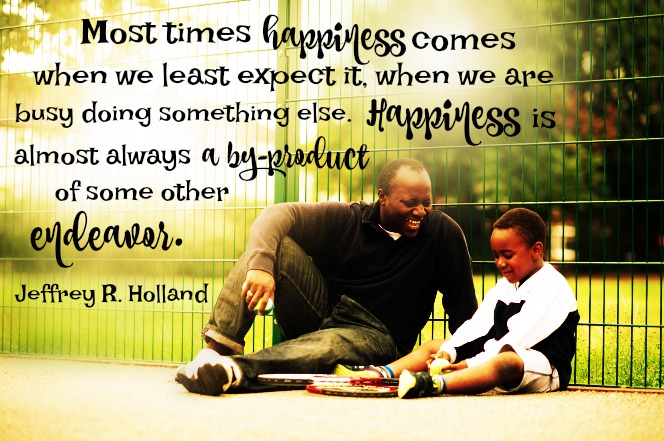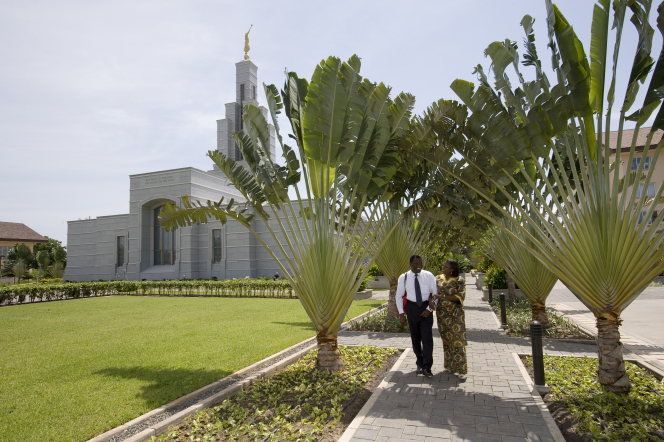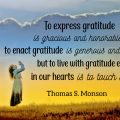This summer went by too fast and the beginning of school is always stressful, so it’s sometimes difficult to remember the fun times that we had. And we did have fun. Along with lazy days and days full of chaos—Driver’s Ed, kids working, felling trees and fixing problems with our home. But that’s life. Life is meant to be lived, and that means different things at different times in our journey. Ultimately, however, we are meant to live “after the manner of happiness” (2 Nephi 5:25). The Prophet Joseph Smith taught,
Happiness is the object and design of our existence; and will be the end thereof, if we pursue the path that leads to it (History of the Church, 5:134).
But what does that mean? What does living after the manner of happiness look like—especially for members of The Church of Jesus Christ of Latter-day Saints?
Defining Happiness
The first question to ask (and answer) is what is happiness? Let’s begin by talking about what happiness is not. I know, it sounds like a weird place to start. But it’s important. Because in today’s world happiness has become confused with pleasure. President James E. Faust explained,
Pleasure, unlike happiness, is that which pleases us or gives us gratification. Usually, it endures for only a short time. As President McKay once said, “You may get that transitory pleasure, yes, but you cannot find joy, you cannot find happiness. Happiness is found only along that well-beaten track, narrow as it is, though straight, which leads to life eternal” (Conference Report, October 1919, 180).
We are enticed daily to pursue worldly pleasures that may divert us from the path to happiness. But the path to true and lasting happiness is, repeating the Prophet Joseph Smith’s words, “virtue, uprightness, faithfulness, holiness, and keeping all the commandments of God” (Teachings, 255–56).
We also equate happiness with getting what we want. This, also, is not true. President Faust said,
Having lived quite a few years now, I have concluded that since we don’t always desire that which is good, having all our desires granted to us would not bring us happiness (see Alma 41:3–7). In fact, instant and unrestrained gratification of all our desires would be the shortest and most direct route to unhappiness. The many hours I have spent listening to the tribulations of men and women have persuaded me that both happiness and unhappiness are much of our own making. …
So, then, what is happiness? Merriam-Webster’s Online Dictionary defines happiness:
: a state of well-being and contentment : joy
Happiness isn’t something tangible that you can hold onto. It’s a state of being.
The Quest for Happiness
The quest for happiness is really the quest of a lifetime and the purpose of our existence here on earth. Elder Jeffrey R. Holland said,
This is not a new quest. It has been one of the fundamental pursuits of humankind through the ages of time. … So how do we “pursue” happiness …? Well, we know one thing for sure: happiness is not easy to find running straight for it. It is usually too elusive, too ephemeral, too subtle. If you haven’t learned it already, you will learn in the years ahead that most times happiness comes to us when we least expect it, when we are busy doing something else. Happiness is almost always a by-product of some other endeavor.
Indeed, President Faust taught,
Although men are “that they might have joy” (2 Nephi 2:25), this does not mean that our lives will be filled only with joy, “for it must needs be, that there is an opposition in all things” (2 Nephi 2:11). Happiness is not given to us in a package that we can just open up and consume. Nobody is ever happy 24 hours a day, seven days a week. Rather than thinking in terms of a day, we perhaps need to snatch happiness in little pieces, learning to recognize the elements of happiness and then treasuring them while they last.
The scriptures teach us that if we were happy all the time, 24 hours a day, 7 days a week, then happiness wouldn’t mean that much to us. It is in the opposition that we find true happiness. (See 2 Nephi 2:11.) The quest for true happiness begins with how we live.
Obedience to God’s Commandments
There are no two ways about it. Happiness in life is only found in obedience to the commandments of God. The Book of Mormon teaches,
Do not suppose … that ye shall be restored from sin to happiness. Behold, I say unto you, wickedness never was happiness (Alma 41:10).
Elder Holland explained,
Above all else, ultimate happiness, true peace, and anything even remotely close to scriptural joy are found first, foremost, and forever in living the gospel of Jesus Christ. Lots of other philosophies and systems of belief have been tried. Indeed, it seems safe to say that virtually every other philosophy and system has been tried down through the centuries of history. But when the Apostle Thomas asked the Lord the question young people often ask today, “How can we know the way?”—which for many translates, “How can we know the way to be happy?”—Jesus gave the answer that rings from eternity to all eternity:
“I am the way, the truth, and the life. …
“And whatsoever ye shall ask in my name, that will I do. …
“If ye shall ask any thing in my name, I will do it” (John 14:5–6, 13–14).
What a promise! Live my way, live my truth, live my life—live in this manner that I am showing you and teaching you—and whatsoever you ask will be given, whatsoever you seek you will find, including happiness. Parts of the blessing may come soon, parts may come later, and parts may not come until heaven, but they will come—all of them. What encouragement that is after a mournful Monday or a tearful Tuesday or a weary Wednesday! And it is a promise the realization of which cannot come any other way than by devotion to eternal truth!
Finding Eternal Truths
If the path to happiness includes obedience to God’s commandments, then it’s imperative that we know what those are and where to find them. Elder Robert D. Hales taught,
The holy scriptures are the word of God given to us for our salvation. The scriptures are essential in receiving a testimony of Jesus Christ and His gospel. …
As with voices from the dust, the prophets of the Lord cry out to us on earth today: take hold of the scriptures! Cling to them, walk by them, live by them, rejoice in them, feast on them. Don’t nibble. They are “the power of God unto salvation” that lead us back to our Savior Jesus Christ.
If the Savior were among us in the flesh today, He would teach us from the scriptures as He taught when He walked upon the earth.
… When we want to speak to God, we pray. And when we want Him to speak to us, we search the scriptures; for His words are spoken through His prophets. He will then teach us as we listen to the promptings of the Holy Spirit.
We also learn the truths of the gospel through our modern-day prophets and Apostles of Jesus Christ. If we follow their counsel, we will find the happiness that we seek.
Happiness is a Choice
Life is all about making choices, and happiness is one of them. President Faust explained,
That inner peace spoken of by the Savior seems elusive when we are preoccupied with things we have or things we wish we had. In a time when we are both obsessed and consumed with the possession and the acquisition of objects, the counsel of Moses seems more needed than ever: “Thou shalt not covet thy neighbour’s wife, nor his manservant, nor his maidservant, nor his ox, . . . nor any thing that is thy neighbour’s” (Exodus 20:17).
We choose the desires of our hearts. And if those desires are not righteous or are contingent upon something acquired, then we run the risk of always waiting for the when—when I get married I’ll be happy… when I have kids I’ll be happy… when I have my car I’ll be happy… when I pay off my car I’ll be happy. The problem with those is that with the joy and happiness also comes the realities of life. When I get married I have to learn to work together with my husband. When I have kids I have to figure out how to raise them right. When I pay off my car, it’ll probably be time to buy a new one. As Elder Holland said,
Happiness comes first by what comes into your head a long time before it comes into your hand.
It’s important to choose to be happy and grateful for what God has given to us—both the good and the bad. Because most of the time, they are so intertwined that you wouldn’t trade any of it. We learn from our mistakes and our trials, and they make us that much more grateful for the blessings and the good times.
Choosing Kindness
Being kind and pleasant even—and especially—during the hard times is also a choice that we make. Elder Quentin L. Cook taught,
The Savior’s charge to His disciples to love one another…is one of the most poignant and beautiful episodes from the last days of His mortal life.
He was not teaching a simple class in ethical behavior. This was the Son of God pleading with His Apostles and all disciples who would come after them to remember and follow this most central of His teachings. How we relate and interact with each other is a measure of our willingness to follow Jesus Christ.
When we choose to be kind and pleasant and reach out to help others in the face of our own personal adversity, it is a sign of our true devotion to Jesus Christ. It will also help us to stay on the true path to happiness. We cannot be truly happy if we are unkind to others. Elder Holland said,
You can never build your happiness on someone else’s unhappiness.
Sometimes, maybe especially when we are young and insecure and trying to make our way up in the world, we think if we can tear someone else down a little, it will somehow miraculously lift us up. That is what bullying is. That is what catty remarks are. That is what arrogance and superficiality and exclusiveness are. Perhaps we think if we are negative enough or cynical enough or just plain mean enough, then expectations won’t be too high; we can keep everyone down to a flaw-filled level, and therefore our flaws won’t be so glaring.
Happy people aren’t negative or cynical or mean…. If my life has taught me anything, it is that kindness and pleasantness and faith-based optimism are characteristics of happy people.
Learn to Work
While work and happiness may seem like strange bedfellows, they are indeed inextricably linked. Elder Holland counseled,
If you want to be happy in school or on a mission or at a job or in a marriage—work at it. Learn to work. Serve diligently. Don’t be idle and mischievous. A homespun definition of Christlike character might be the integrity to do the right thing at the right time in the right way. Don’t be idle. Don’t be wasteful. … Be industrious and labor, including laboring for and serving others—one of the truly great keys to true happiness.
President Gordon B. Hinckley taught,
There is no substitute under the heavens for productive labor. It is the process by which dreams become realities. It is the process by which idle visions become dynamic achievements.
Most of us are inherently lazy. We would rather play than work. We would rather loaf than work. A little play and a little loafing are good. But it is work that spells the difference in the life of a man or woman. It is stretching our minds and utilizing the skills of our hands that lift us from mediocrity. It is work that provides the food we eat, the clothing we wear, the homes in which we live. We cannot deny the need for work with skilled hands and educated minds if we are to grow and prosper individually and if our nation is to stand tall before the world (from Ensign, Aug. 1992, 4).
You find inherent joy and satisfaction in a job well done.
Finding Joy in Service
Work not only benefits us, but we can also use it to benefit others. President Hinckley continued,
The best antidote I know for worry is work. The best medicine for despair is service. The best cure for weariness is the challenge of helping someone who is even more tired.
We can find great moments of peace and joy in these times of selfless service—by losing ourselves in the service of others. President Faust said,
Many speak these days about the rights of consumers to enjoy products that are “free, perfect, and now”—that is, at low cost, with no defects, and immediate service. The problem is that too many of us try to consume happiness rather than generate it. Shakespeare expressed a philosophy in As You Like It that seems commendable: “I am a true labourer: I earn that I eat, get that I wear; owe no man hate, envy no man’s happiness; glad of other men’s good” (As You Like It, 3.2.65–67).
Earning what we eat will make us self-sufficient, but giving back a little by helping our neighbor or our fellow students will bring us something more. For example, if you deliver to an atomic energy breeder reactor the energy of three truckloads of fuel, it will return the energy of four or maybe five truckloads of fuel. Happiness, like the breeder reactor, adds and multiplies as we divide it with others.
Remembering Repentance
The best path to true happiness is to avoid sin and transgression. Elder Holland taught,
… You [must] reject transgression in order to live consistent with the nature of God, which is the nature of true happiness. … You can’t find it any other way.
But sometimes we make mistakes. Sometimes we do things that cause hurt, anger and frustrations for others. Sometimes we sin. We are all human. But a loving Heavenly Father knew that we would falter and prepared a way for us to get back on track—repentance. Elder Neil L. Anderson said,
When we sin, we turn away from God. When we repent, we turn back toward God.
The invitation to repent is rarely a voice of chastisement but rather a loving appeal to turn around and to “re-turn” toward God. It is the beckoning of a loving Father and His Only Begotten Son to be more than we are, to reach up to a higher way of life, to change, and to feel the happiness of keeping the commandments. Being disciples of Christ, we rejoice in the blessing of repenting and the joy of being forgiven. They become part of us, shaping the way we think and feel.
I am amazed at the Savior’s encircling arms of mercy and love for the repentant, no matter how selfish the forsaken sin.
Living After the ‘Manner of Happiness’
Happiness is the pursuit of our lifetime, the ultimate quest of mortality. That doesn’t mean that life will always be a bed of roses—well, it might. Roses are beautiful, but you can’t escape the thorns. And there are times when they lie dormant and aren’t so pretty. When we moved into our old house about six years ago, there were ugly, scraggly, thorny bushes lining the front walkway. I really wanted my husband to pull them out, but we went out of town soon after moving in. That was going to be our summer project. But when we returned home, the ugly bushes had grown leaves and beautiful blossoms of flowers—roses and peonies. Had we taken the time to pull out the bushes, we would have missed out on years of enjoying the flowers.
You can’t have the beauty without the thorns and the ugly dead season. You have to put in the work and stay on the path to find true happiness. Elder Holland said,
… Your best chance for being happy is to do the things that happy people do, live the way happy people live, and walk the path that happy people walk. As you do so, your chances to find joy in unexpected moments, to find peace in unexpected places, and to find the help of angels when you didn’t even know they knew you existed improve exponentially.
Living after the manner of happiness doesn’t mean that life will be free of challenges. It just means that when the rain comes and winds howl, we can have faith that the Lord will look out for us—and we might just find a rainbow after the storm has passed. We just need to look out for it.










